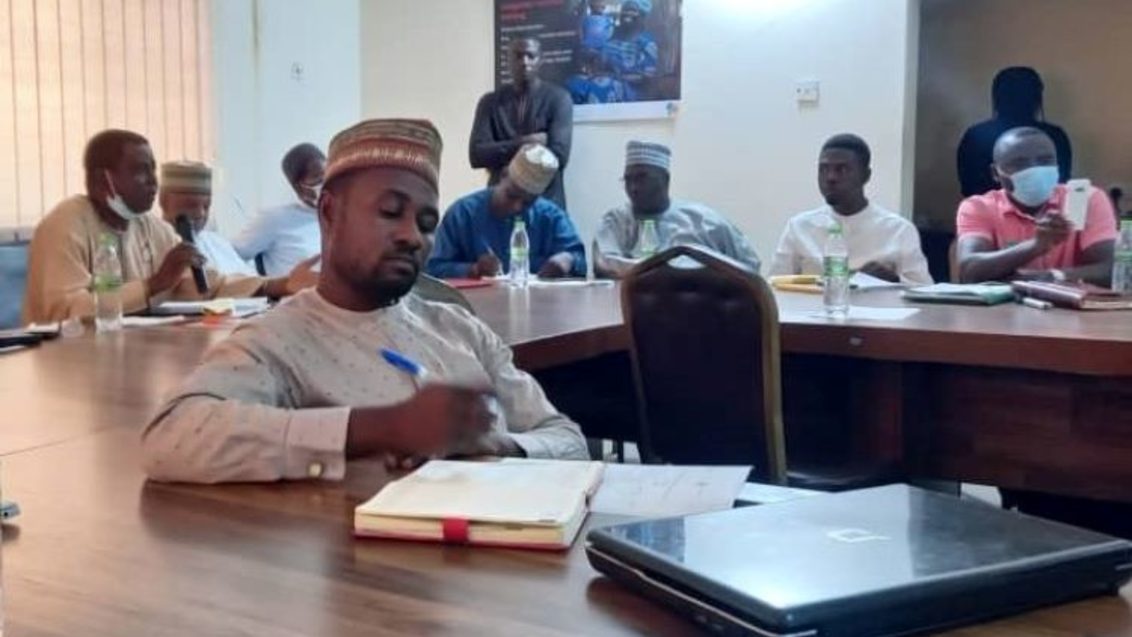Time for a new look at seed systems

Nigeria faces considerable worries about projected food scarcity and insecurity. Our team there recently brought together seed sector stakeholders involved in the AVISA program (Accelerated Varietal Improvement and Seed Delivery for Legumes and Cereals). Discussion focused on how food production can be boosted by better smallholder access to healthy, affordable, high-quality seeds.
The AVISA meeting, held after the onset of the 2021 farming season, was an opportunity to collaborate with partners (the International Institute of Tropical Agriculture (IITA), the International Crops Research Institute for the Semi-Arid Tropics (ICRISAT), the Institute for Agricultural Research (IAR), the Federal University of Agriculture, Makurdi (UAM) and the Center for Dryland Agriculture (CDA-BUK)) along with participants from 16 seed companies. Also at the meeting were the seed system regulator, the National Agricultural Seeds Council (NASC), and officials from the Kano State Agricultural and Rural Development Authority (KNARDA). (Websites are listed below*)
Our Nigerian Country Program Coordinator, Isaiah Gabriel, defined how our Farmers’ Hub model is a “catalytic innovation”. It aims to improve smallholders' livelihoods through improved production, for example via the promotion of high-quality seed.
“The Hub initiative was made to bridge the gap between the demand for improved seed and its availability in rural areas,” Gabriel said, adding that the Hub also serves as a “one-stop shop” for smallholder farmers to source various inputs, benefit from extension services, and share intelligence about market and weather conditions. He explained that the Farmers’ Hub model provides a platform for aggregation by off-takers, and encouraged seed companies to take advantage of it to advance their market reach.
Seed System Specialist Professor Lucky Omoigui reviewed the seed fair held several months earlier. He had observed that lack of awareness was an issue among smallholders and suggested that demonstrations by seed companies might help to showcase and convince them of the benefits of improved seed. Omoigui acknowledged that despite the gains made by the continuous release of new varieties, there were still some bottlenecks in the seed systems in terms of uptake and commercialization.
“There has been a steady increase in the grain market, which suggests that the seed market should experience commensurate growth,” he maintained, emphasizing that the aim of the AVISA meeting was to “provide a platform where key players could dissect the uphill task around the process of adopting and commercializing new varieties of these orphaned crops.”
AVISA Country Coordinator Professor Mary Yeye said there was a need for proper forecasting to ensure seed sustainable production. She urged companies to ensure that requests to the seed producers arrive earlier in the preceding year, so that they can make robust production plans.
Our local Seeds2B Manager, Ephraim Manga, called on the NASC to protect the interests of seed companies through the creation of favorable policies, and to undertake national promotional events to increase awareness of improved seeds. In addition, he advised seed companies to promote the availability and accessibility of AVISA seeds. Responding, the NASC’s Regional Director for the Northwest, Ubandoma H Mohammed, promised that his organization would give seed companies the support they need. He revealed that a mandate has been given to selected seed companies to produce foundation seeds. Mohammed cautioned seed companies to get information from research institutions when developing seed, to avoid producing varieties with little demand.
Dr Vabi Michael presented a survey on the awareness and adoption of improved crop varieties by farmers through technology. The survey indicated that 75 percent of farmers use smartphones to be informed about issues such as inputs and market prices, but rarely use the same technology to access information about seeds. Despite this, the high level of technology awareness and adoption among farmers presents opportunities for upscaling seeds and enhancing partnerships between seed companies and the public.
Professor Johnson Onyibe and Dr Hakeem pointed out the need to carry out further analysis to prove the profitability inherent in the Farmers’ Hub model in relation to food sustainability and productivity.
Representatives of various seed companies identified some of the challenges they face. One is the award of government seed contracts to non-existent companies. This reduces smallholders' confidence about improved seed. The seed company representatives commended Isaiah Gabriel and his team for giving them the opportunity to point out some of the sectors' difficulties and prospects.
AVISA Program Coordinator Professor A Echekwu applauded the cooperation between the Syngenta Foundation and other agricultural stakeholders in initiating the meeting.
** iita.org/, icrisat.org/, iar.gov.ng/; uam.edu.ng/, cda-buk.edu.ng/, seedcouncil.gov.ng/, developmentaid.org/#!/organizations/view/196217/kano-state-agricultural-and-rural-development-authority-knarda
